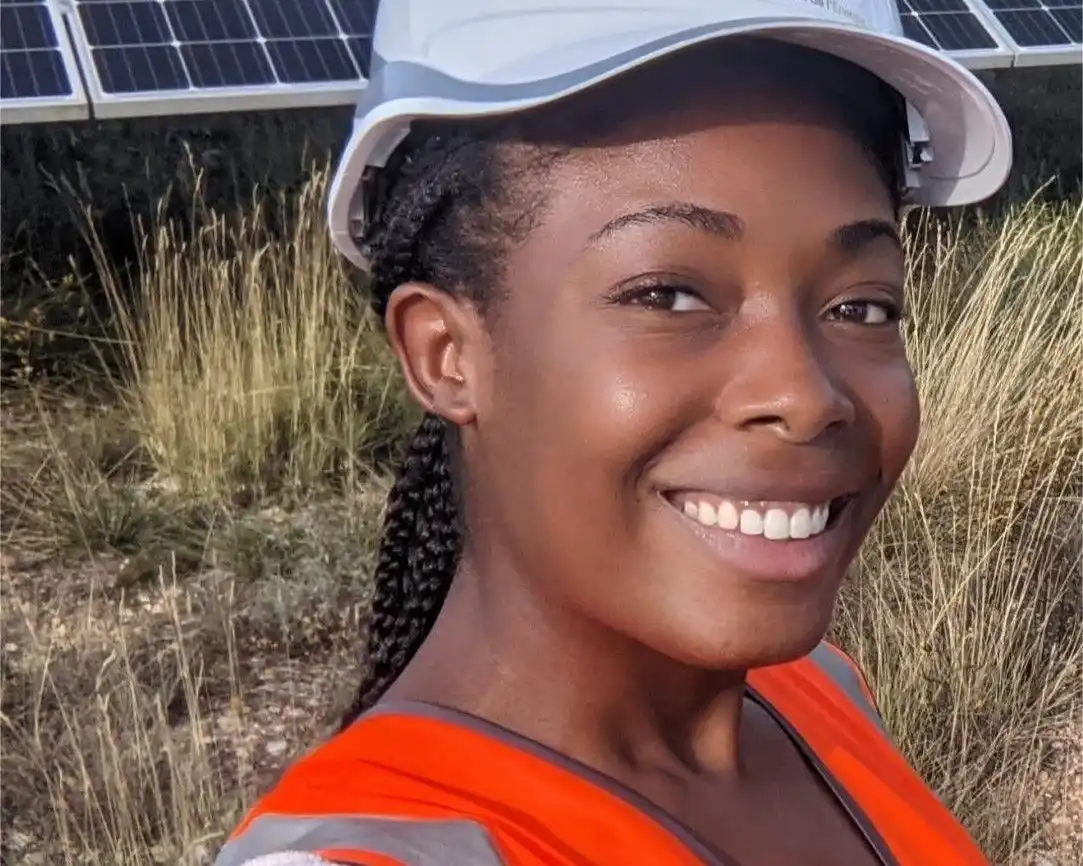Home>Shadé, Global Energy Specialist at the United Nations at UNDP
14.04.2025
Shadé, Global Energy Specialist at the United Nations at UNDP
Shadé Jaiyeola graduated in Environmental Policy with concentrations to better understand how governments and markets, especially in low- and middle-income countries, can address climate change through energy policy while driving prosperity and improving quality of life. As a dual citizen of France and Nigeria, Shadé is Global Energy Specialist at the United Nations Development Program (UNDP) in New York City.
What are your main responsibilities?
I am part of the Sustainable Energy Hub at UNDP, where our main mission is to support governments in developing countries in implementing policies to achieve a just energy transition, meaning a shift to low-carbon energy systems that also advance economic growth, reduce inequalities and improve human development. This means ensuring that the transition not only decarbonizes economies but also creates jobs, improves livelihoods, and strengthens resilience in communities that are often most vulnerable to climate impacts and energy poverty.
My day-to-day tasks include
- to develop policy briefs and strategic notes on emerging energy topics that are relevant to emerging economies
- respond to country office requests by conducting research on energy challenges and identifying context-specific policy options aligned with national development priorities
- to contribute to policy design, reviewing energy access projects to ensure they are bankable and will have the intended impacts on populations
- to support global knowledge-sharing efforts by helping coordinate webinars, publish success stories, and inform thought leadership at UNDP and beyond.
The most important skills required for this position are critical thinking, the ability to connect the dots between geopolitical issues, economic factors, energy technologies and policies, all with the final goal of powering clean energy solutions for development. This position requires a curious mind, good writing and research capabilities, and the ability to translate complex energy challenges into actionable insights. This connects neatly with my passion for sustainable energy and geopolitics. I find myself applying learnings from books, articles, or reports I read for leisure to the projects I work on.
How did you prepare for this job?
Before applying for this position, I connected with several people from the energy and development space, notably Sciences Po alumni or contacts I met during climate and energy conferences. These conversations were very helpful in understanding the kinds of skills and experiences that were most valued in this field. I also kept myself informed on the latest news in energy, climate and geopolitics by reading from a variety of sources, notably UN agencies, energy think tanks, and international news sources. It helped me develop content knowledge and identify where my passion could meet the needs of organizations like UNDP.
What is the most fascinating part of your job?
One of the best parts of my job is to be able to learn something new every day. I had a solid background in climate and energy before I started, but I am now constantly diving into new topics, from analyzing green hydrogen strategies in Bhutan, to researching subsidy reforms in Iran, or exploring how AI and digital tools can scale energy access in rural Africa. It is a great opportunity to learn about the interconnectedness between geopolitics, energy and development, while opening my mind to new horizons.
Another fascinating aspect is the global and collaborative nature of the work. I regularly engage with colleagues and experts from across the world, which brings rich perspectives and improves my understanding of the diversity of energy challenges and opportunities in different contexts.
How did your PSIA experience contribute to the position you hold today?
My classes on energy markets, international climate negotiations, and development economics gave a solid introduction to the reality of the global energy markets and international climate policies.
Beyond the intellectual foundation, I also enjoyed the flexibility that PISA offered to shape my path. I had the chance to do a gap year between my first and second year at PSIA, which allowed me to do two internships, one at the UN Environment Program, and one at a renewable energy consulting firm in New York. Both experiences allowed me to explore my interests more deeply and understand how to use my skills and to build a career that feels impactful and personally fulfilling. My experience in New York has developed my interest in renewable energy, while my time at UNEP has contributed to my passion for international relations.
What advice would you give to current students?
You surely have heard this advice many times before, but networking is truly important. It is key not only for job searching but also to learn from others and figure out where your skills and interests will be better suited. It can also open the door to identifying career paths or organizations you didn’t even know existed. Don’t hesitate to reach out to LinkedIn connections or alumni for a 15-minute chat or to attend events, even just out of curiosity. It can lead to great career tips, connections, and sometimes even friendships. Another important advice is to share generously. Share what you learn, share what you read and found interesting, share a job posting to someone who might be interested, share a thought-provoking article to your network. It can lead to valuable conversations that can help you and others grow and learn.
